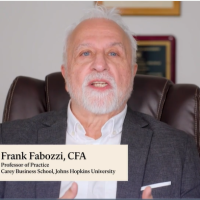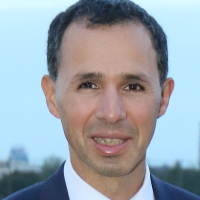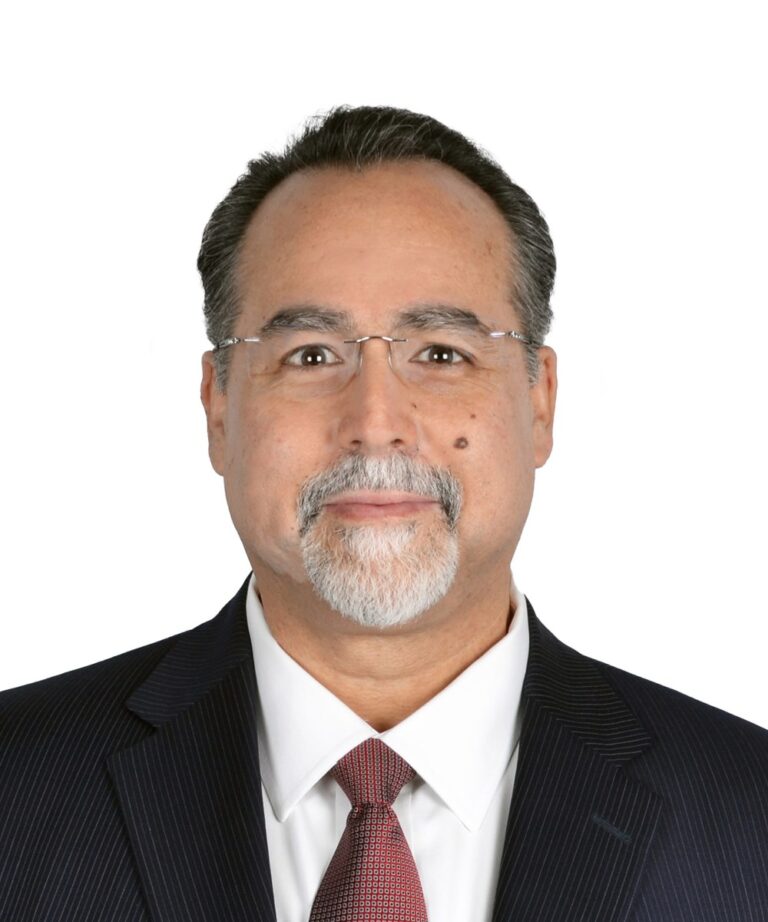Christie Hutcherson, the right-wing activist from Texas who founded the organization Women Fighting for America, describes herself as a national-security expert and an authority on immigration. She often films herself in aviator sunglasses and hoop earrings, speaking to her online followers from the U.S.-Mexico border and showing her viewers distant figures whom she claims are cartel members. Though the Department of Homeland Security has recently said that border crossings are at an all-time low, Hutcherson’s diagnoses on the state of immigration are apocalyptic. “Anytime you have an influx like this, it eventually collapses the society,” she said on a podcast earlier this year. “I believe that’s part of the plan.”
A recent BBC documentary shows a member of Hutcherson’s security team strapping her into body armor as the group prepares to tour an encampment sponsored by the humanitarian group No More Deaths. “Who would be doing the shooting?” the BBC host asks tentatively. The man adjusting the vest, Cade Lamb, makes a grim face. Lamb, who is an army veteran and the son of Mark Lamb, a right-wing politician and former sheriff in Pinal County, Arizona, tells the host that the threat comes from “military-aged males” who are “asylum seekers,” making air quotes around the latter term with his fingers. The group examines the campsite. There are no people there, just pots and pans, shoes, coolers for food and water, and a makeshift basketball hoop. Nevertheless, Lamb is armed; Hutcherson surveys the area wearing night-vision goggles.
Like many people in the right-wing border ecosystem—a porous zone where law enforcement, social-media propagandizing, and militia activity feed into each other—Lamb wears a few different hats. He provides border tours for right-wing media figures. He co-hosts a podcast on “practical, kinetic solutions to many of todays [sic] societal and political problems” with Kyle Rittenhouse, who was acquitted of shooting Black Lives Matter protesters in Kenosha, Wisconsin. He mans his own missions to capture, on video, what he views as the dangers of the southwest border. And he does much of this in his capacity as a private security guard: Lamb has his own company, Sonoran Asset Group, and was also at one point employed by Mayhem Solutions Group, a private security company that received twenty million dollars from the State of Texas to bus immigrants from the border to liberal cities such as New York and Washington, D.C.
In states with lax gun laws, private security—a broad, thinly regulated industry that heavily employs ex-cops and former servicemen—can be a bridge between law enforcement and vigilante activity. Both Lamb and Shawn Wilson, the founder of Mayhem, are affiliated with militia-style groups on the border: Lamb’s Sonoran Asset Group filmed fearmongering footage for his father’s defunct Senate campaign, and Wilson was once a member of Arizona Border Recon, a “civilian patrol group.” (Wilson did not respond to my interview requests, but the website for his security firm is now shut down; his new venture, which sells gold, is based in Dubai.) “A lot of these groups have really blurry boundaries,” Amy Cooter, a co-founder of the Institute for Countering Digital Extremism and an expert in U.S. militias, told me. “It seems like some of them maybe have an online presence as security companies, and they’re trying to book contracts or something, but mostly they’re really just running around, target shooting with each other and looking more like a militia in practice.”
The chaotic and lawless tactics of the Trump Administration are helping to blur the lines between the military, law enforcement, and civilian enthusiasts. Almost as soon as Trump announced his plans for “mass deportations,” private citizens expressed their eagerness to participate. Shortly after after being appointed border czar, Tom Homan, who is linked to border militias and many far-right influencers promoting the “border invasion” narrative, told Fox News, “Thousands of retired agents, retired Border Patrol agents, retired military . . . want to come in and volunteer to help this President secure the border and do this deportation operation.” As the Administration hollows out institutions, including federal law enforcement, the idea of private police, whether in the form of volunteers or cops for hire, has become increasingly attractive to many on the right. In Idaho, five security guards with a firm called Lear Asset Management were recently charged with misdemeanors for their role in forcibly removing a local resident from a Republican town hall. Those security guards, who were not in uniform—a violation of the state code—were accompanied by the county sheriff, a Republican named Bob Norris.
The fervor for citizen policing is perhaps on fullest display at the Border Security Expo, an annual bonanza showcasing expensive gear, ranging from robot dogs to powerful A.I. facial and license-plate recognition software. This year’s expo, in Phoenix, featured autonomous attack drones sold by Anduril Industries, a company that was co-founded by Matt Gaetz’s brother-in-law and funded by Peter Thiel. The most notable part was the unusual number of Trump Administration officials who gave keynote speeches, almost all touting the idea that mass deportation would only be achievable if the D.H.S. could make its enforcement machine more efficient and less concerned with immigrants’ rights. Addressing a packed room of law-enforcement officers and law-enforcement enthusiasts at the expo, the acting ICE director, Todd Lyons, said, “We need to get better at treating this like a business.” He described his agency’s goal to be “like [Amazon] Prime, but with human beings.”
Homan, the border czar, once talked about leaving enforcement to the professionals—“let the badge and guns do the badge-and-gun stuff.” But the truth is that, for years, unaffiliated individuals have flocked to the border as a playground for practicing military-style tactics, and are eager to get in on the action. Hutcherson, the right-wing border influencer, has urged the Trump Administration to “deputize and hire these private contractors to come in and help round up all of these individuals, because there’s just so many that are here.” “We’re in talks with a few different people,” Tim Foley, a border-militia leader, told Wired. “We have a better lay of the land than the federal agents do.”
Border militias have existed in the U.S. since the nineteenth century. What we now know as Customs and Border Protection (C.B.P.), the law-enforcement agency responsible for policing the U.S. borderlands, descended from “mounted watchmen” who toured the desert on the lookout for Chinese immigrants. In 1977, the Ku Klux Klan leader David Duke planned to form a border militia whose members, the Times wrote, would carry radios and “legally registered weapons” in order to “help curb the flow of illegal aliens.”
In the early two-thousands, a group called the Minuteman Project (part of which became a militia known as the Minuteman Civil Defense Corps) conducted monthlong border tours that drew hundreds of volunteers, many of them military veterans and other men whom the sociologist Harel Shapira, the author of “Waiting for José: The Minutemen’s Pursuit of America,” described as escaping “the sense of meaninglessness” by reënacting military-style campaigns in the desert. Many of the volunteers would use equipment such as night-vision goggles to watch for migrants crossing the desert, spotting them with flashlights, and then call Border Patrol agents to effectuate arrests. In 2009, three people affiliated with a similar volunteer outfit were convicted of killing a nine-year-old girl and her father in Arizona.
These militia-style groups flourished during Joe Biden’s Presidency, as border crossings increased and the right-wing media hyped anti-immigrant fears. Many border militias were influenced by QAnon conspiracy theories of sex trafficking, and these vigilantes often served as alternative media themselves, making videos and streaming them on X. As I was reporting for my book about the political power of sheriffs, I noticed that the militias and private security companies were hard to distinguish from one another. The availability of paramilitary equipment, including night-vision goggles, drones, and firearms—which are legal to carry in Arizona without any training or license—means that almost anyone can equip themselves like soldiers. Shapira, the sociologist, said that private security companies and militias are “often, literally, the same people.” Many of the militia members that he encountered in his field work continue to do a variety of legitimate security work and volunteer security, including at Trump rallies.
Private security remains loosely regulated and under-studied. In 2012, Stephen Rushin, now a law professor at Loyola University Chicago School of Law, published an article in the West Virginia Law Review observing that states “require private police to complete few training hours before licensing,” and that “private police appear notably less professionalized than their public counterparts.” Ben Grunwald, a professor at Duke University School of Law, told me, “It’s possible that the private security officers being placed on the border have far less training than their police counterparts, which could increase the risk of unnecessary force, intrusive searches, and arbitrary enforcement.” There are also questions of accountability: private contractors hired by the government can be sued as state actors if they commit wrongdoing, whereas it is less clear who can sue a group like Mayhem conducting border missions.
The longtime border journalist Todd Miller told me that border-security agencies such as C.B.P. and ICE have long relied on private contractors, including security guards who do menial work at ports of entry so that Border Patrol can conduct more rigorous missions. But the vast network of online border propagandists, alongside the Administration’s open embrace of racist ideologies, has supercharged the sense that an army of privatized and lightly trained men with guns might be necessary to meet the moment. “Experts” like Hutcherson and Lamb are presenting a vision of immigration that is fraught with fear, terror, and danger, even though many law-enforcement officials say that the border is currently extremely quiet. Cooter, the U.S.-militia expert, said that these activities give a sense of purpose and meaning to people who wish to see themselves “in a protector role.” They see it, in her words, as a “patriotic service.” ♦








